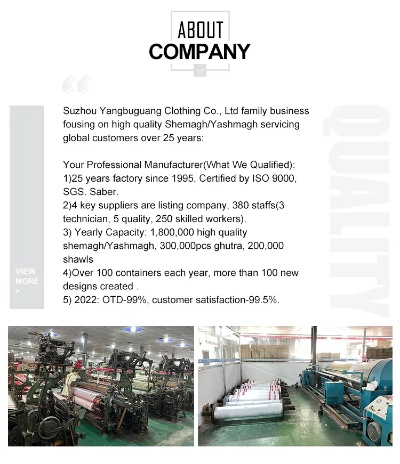A Comprehensive Guide to the Export Process for Textile Goods
This comprehensive guide provides a detailed overview of the export process for textile goods. It covers topics such as understanding tariffs and quotas, selecting the appropriate export channels, preparing documents, customs declarations, and more. The guide also includes tips on how to negotiate with buyers and avoid common pitfalls in the export process. By following these steps, businesses can successfully navigate the complex world of textile exports and achieve their goals.
Introduction: Textile products, being a significant part of global trade, play a crucial role in boosting economic growth and employment opportunities worldwide. The export process for textile goods is intricate and requires careful planning, execution, and documentation. This guide aims to provide an overview of the essential steps involved in exporting textile goods, including the preparation of documents, customs clearance, logistics, and post-export procedures. By following this guide, you can ensure a smooth and successful export journey.
Step 1: Preparation of Documents Before exporting textile goods, it is essential to prepare the necessary documents. These include invoices, packing lists, and certificates of origin (COC). Invoices are used to track the goods' movement during transit and payment. Packing lists detail the contents of each package and the quantity of each item. COCs are issued by the importing country's customs authorities to demonstrate compliance with export regulations. It is recommended to consult with a professional export agent or customs broker to ensure that all required documents are prepared correctly and in accordance with international standards.

Example: In the case of a textile company exporting fabrics from China to the United States, the company would need to prepare several documents, including a sales invoice, packing list, COC, and a bill of lading. The sales invoice will show the price and quantity of the fabrics sold, while the packing list will specify the weight and dimensions of each package. COCs will be required to prove compliance with US export regulations, such as tariffs and quotas. Finally, a bill of lading will serve as proof of delivery and will be used by customs authorities to clear the goods upon arrival in the U.S.
Step 2: Customs Clearance Once the necessary documents are prepared, the next step is customs clearance. This involves submitting the documents to the relevant customs authority at the port of entry and paying any applicable taxes or duties. Customs officers will inspect the goods and determine their value based on their composition and other factors. If the goods pass inspection, they will be cleared and allowed to enter the country. If there are any issues or delays, further action may be required.
Example: For example, if a textile company is exporting fabrics from Hong Kong to France, they would need to submit the sales invoice, packing list, COC, and a bill of lading to the French customs authorities. They would also need to pay any applicable taxes or duties, which could include VAT or tariffs. The customs officers will inspect the goods and determine their value based on their composition and other factors. If the goods pass inspection, they will be cleared and allowed to enter France.
Step 3: Logistics After customs clearance, the next step is logistics. This involves arranging transportation for the goods to reach their destination. There are various options available, including sea freight, air freight, or road transport. The choice of transportation method depends on factors such as cost, time, and distance. It is important to choose a reliable and efficient transportation service to ensure the goods arrive at their destination safely and on time.
Example: If a textile company is exporting fabrics from Malaysia to Germany, they would need to arrange for sea freight to transport the goods. They would need to select a reputable shipping company and negotiate terms such as delivery date, weight limit, and insurance coverage. Once the goods are loaded onto the ship, they will be transported across international waters to Germany.
Step 4: Post-Export Procedures Once the goods have been shipped, the final step is post-export procedures. This involves handling any customs formalities after arrival at the destination country's port of entry. This may include additional paperwork, customs declarations, and payment of any additional fees or taxes. It is important to stay up-to-date with local regulations and policies to avoid any delays or complications.
Example: If a textile company is exporting fabrics from Vietnam to the United Kingdom, they would need to handle any customs formalities after arrival at the UK port of entry. They would need to complete any necessary paperwork, such as customs declarations and payment of any additional fees or taxes. Additionally, they may need to arrange for storage or distribution of the goods once they have been cleared by customs authorities.
Conclusion: Exporting textile goods requires careful planning and execution. By following the steps outlined above, you can ensure a smooth and successful export process. It is essential to stay informed about local regulations and policies, as well as seek professional advice from experienced export agents or customs brokers. With proper preparation and attention to detail, you can achieve your goals and expand your business globally.
纺织品出口流程涉及多个环节,从原材料采购到最终成品出口,每个环节都需要严格把控,本表格旨在详细介绍纺织品出口的流程,并结合实际案例进行说明。

纺织品出口流程概述
原材料采购
a. 选择供应商:根据市场需求和产品质量要求,选择合适的原材料供应商。 b. 合同签订:与供应商签订采购合同,明确双方的权利和义务。 c. 检验与认证:对采购的原材料进行质量检验和认证,确保产品质量符合标准。
出口申报
a. 准备文件:根据出口国家的要求,准备相关出口申报文件。 b. 办理出口手续:向海关、检验检疫等部门办理出口手续。 c. 缴纳税费:根据出口贸易规则,缴纳相关税费。
包装与检验
a. 包装设计:根据出口国家的要求和产品特性,设计合适的包装。 b. 包装生产:委托包装生产厂家进行包装生产。 c. 质量检验:对成品进行严格的质量检验,确保产品质量符合标准。
运输与报关
a. 选择运输方式:根据产品特性和运输成本等因素,选择合适的运输方式。 b. 办理运输手续:向承运人办理运输手续。 c. 报关报检:向海关、检验检疫等部门办理进出口手续,确保货物顺利通关。
实际案例说明

以某纺织品出口企业为例,详细说明纺织品出口流程。
原材料采购与检验
a. 选择供应商:该企业选择了一家信誉良好、产品质量可靠的原材料供应商。 b. 质量检验:原材料经过严格的质量检验,确保产品质量符合标准,该企业还对原材料进行环保认证和安全认证。
出口申报与手续办理
a. 准备文件:该企业根据出口国家的要求,准备了相关出口申报文件,包括产品说明书、质量检测报告等。 b. 办理出口手续:该企业向海关、检验检疫等部门提交了出口申报材料,并顺利通过了相关手续,该企业还需缴纳相关税费。
包装与运输
a. 包装设计:该企业根据出口国家的要求和产品特性,设计了合适的包装材料和工艺,该企业还委托专业的包装生产厂家进行包装生产。 b. 运输方式选择:该企业选择了适合产品的运输方式,确保货物能够安全、快速地到达目的地,该企业还提供了运输保险和货物跟踪服务。
纺织品出口流程涉及多个环节,每个环节都需要严格把控,在纺织品出口过程中,企业需要选择合适的供应商、签订采购合同、进行质量检验和认证、准备出口申报文件、办理进出口手续、缴纳税费等,企业还需要注意包装设计、选择合适的运输方式等环节,在实际操作中,企业还需要结合实际情况进行灵活应对,确保纺织品出口流程的顺利进行。
Articles related to the knowledge points of this article:
A Glimpse into Ruiyang Textiles Factory
Textile Factory Emergency Response Card
Unleash your Style with Casimodos Latest Textile Collection
The Story of Double Connect Textiles:A Multinational Textile Company



